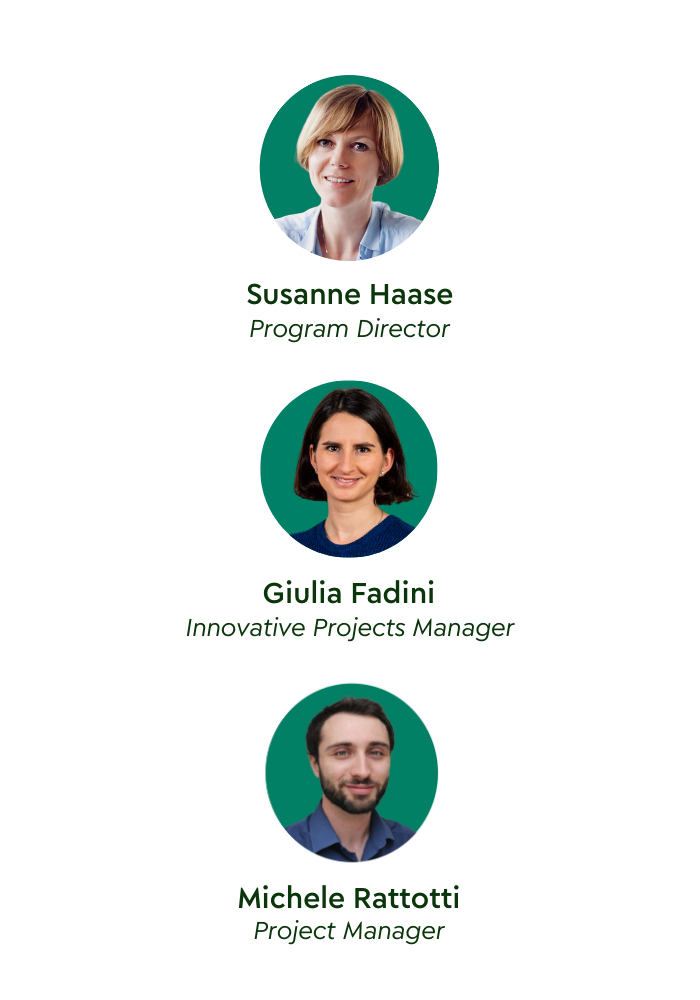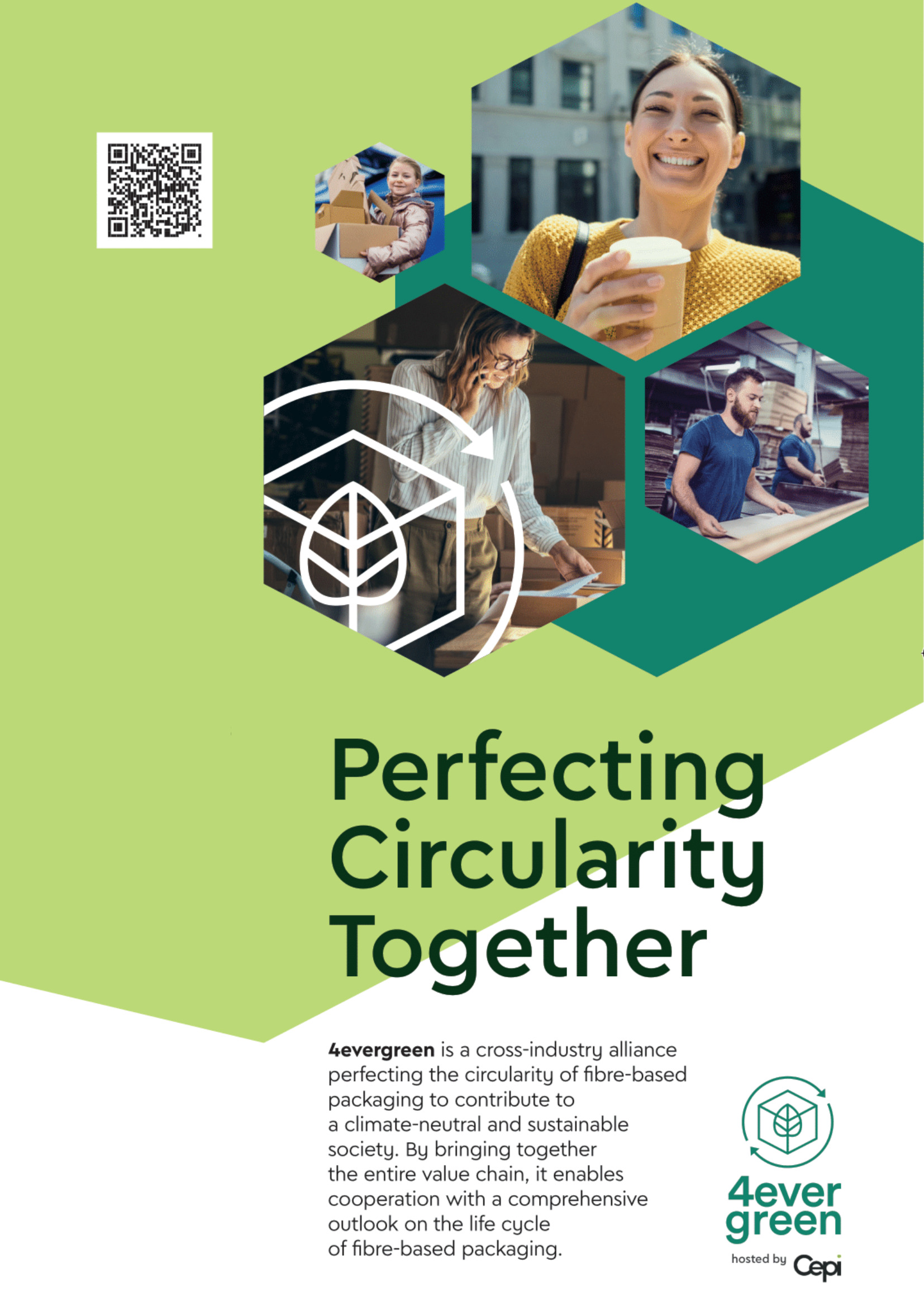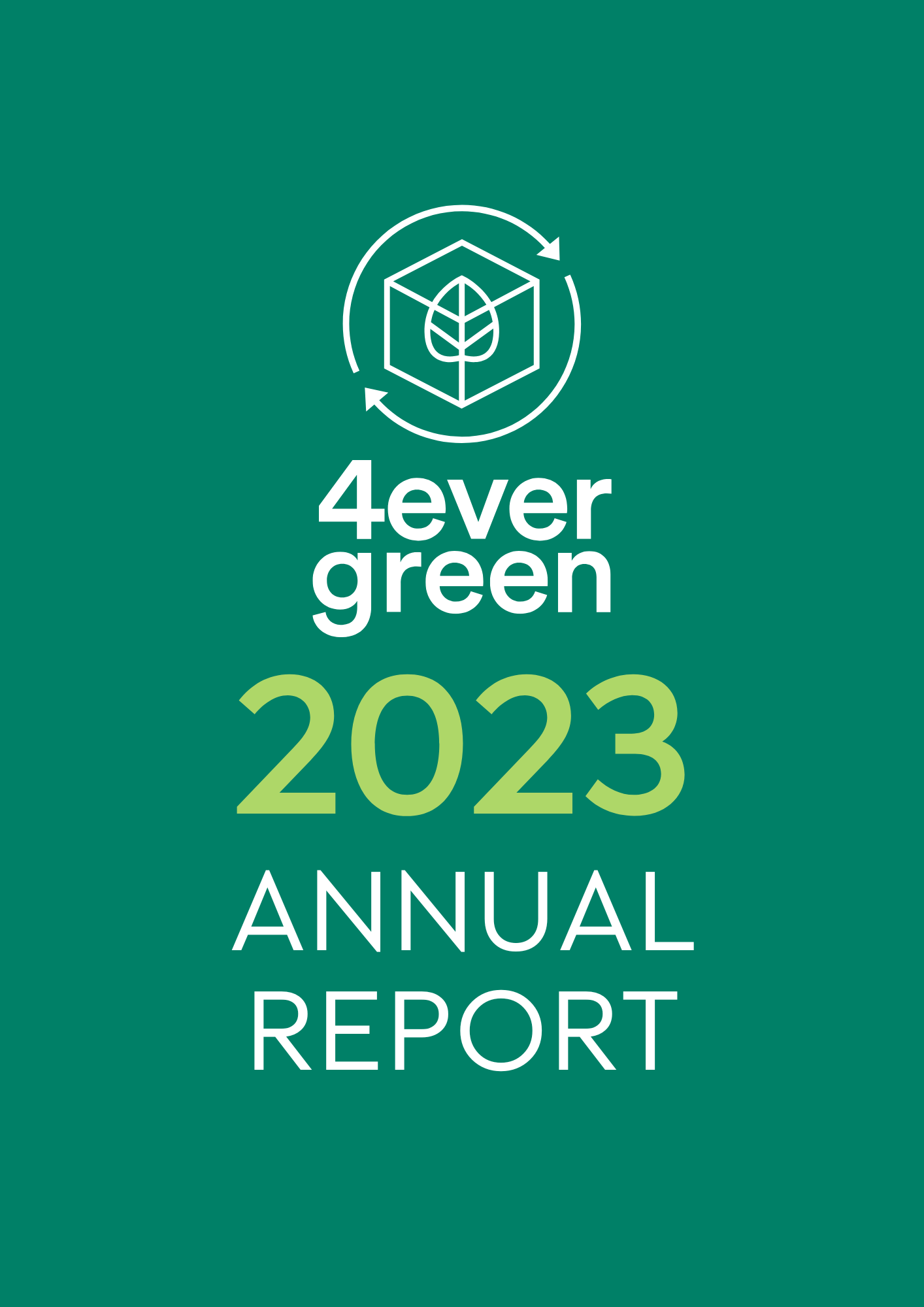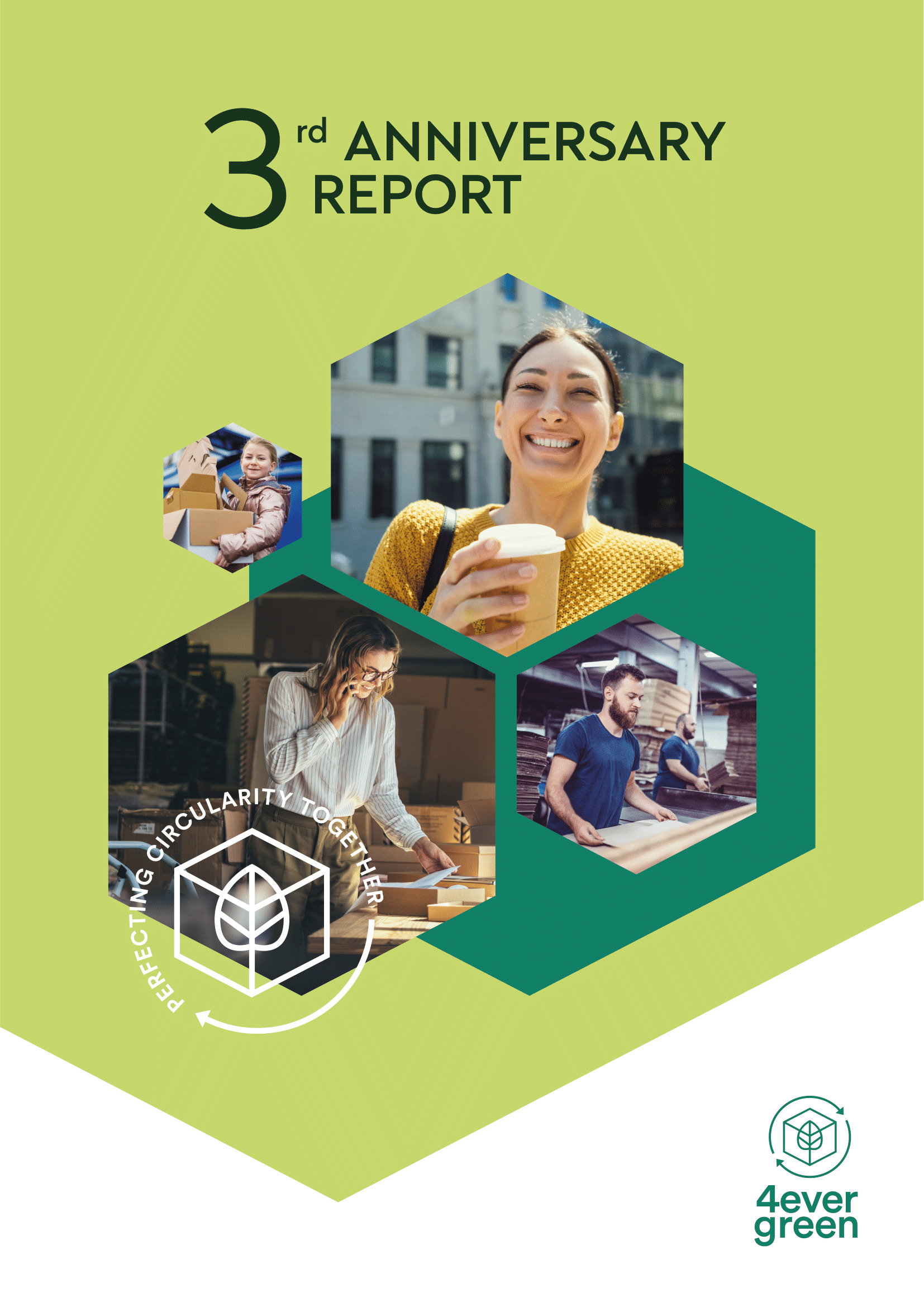Fibre-based packaging – from paper cups to cardboard boxes – represents about 38% of all packaging on the market in Europe.* The variety of fibre-based packaging on the market is growing. The alliance pays particular attention to packaging types with a lower circularity performance today: those used for household, out-of-home and on-the-go consumption. Innovation is at the heart of our alliance. We are working together to accelerate the development of new technologies to tackle sorting and recycling challenges. 4evergreen has identified four targets to meet by 2025, on our journey towards a 90% recycling rate by 2030: That the fibre-based industry recognises and uses 4evergreen’s recyclability evaluation protocol and its circularity by design guidelines; That separate collection streams are available for all fibre-based packaging types, including those used in household, out-of-home and on-the-go consumption; That all paper for recycling is sorted according to the paper and board categories specified in the EN643 standard; That 100% of collected fibre-based packaging is recycled. *source of data: Material Economics, 2020, Article on Sustainable Packaging – The Role of Materials Substitution
4evergreen is an alliance of over 100 manufacturers, designers, brand owners, researchers and recyclers who want to contribute to a climate neutral society by perfecting the circularity and sustainability of fibre-based packaging. The goal is to reach a 90% recycling rate for fibre-based packaging by 2030.
How we operate
4evergreen alliance members collaborate through four technical workstreams that develop tools and guidance for different aspects of fibre-based packaging sustainability and circularity. An information workstream focuses on sharing the results with relevant audiences and tracking policy developments, while the alliance’s Steering Group sets the strategy.
WS-1: recyclability evaluation protocol
This workstream is developing a harmonised, publicly available Recyclability Evaluation Protocol for fibre-based packaging. The protocol builds on the Confederation of European Paper Industries (Cepi) harmonised European laboratory test method, and will give the industry a common tool to evaluate how recyclable current and future packaging materials are.
A beta release of the first version of this protocol, for measuring recyclability in standard mills, was made available in December 2022. Future versions will include improvements based on industry feedback, and will expand the tool to include recyclability in deinking and specialised recycling facilities. These are expected in the course of 2023.
Results from the protocol’s use will provide comparable insights on recyclability that can feed into guidelines being developed in other workstreams of the alliance.
WS-2: "circularity by design" guidelines
Alliance experts are working on guidelines to ensure any new fibre-based packaging is designed with circularity in mind, right from the start. The guidelines provide recommendations for designing packaging and materials that are easy to collect, sort, and recycle.
A first version of the Guideline was published in March 2022 to provide recommendations for recycling packaging in standard mills.
In June 2023 the alliance has released the Circulairty by Design Guideline Version 2, which increases the scope of the document by incorporating packaging design recommendations for compatibility with specialised recycling processes; particularly, for the recycling of used beverage cartons (UBC) and packaging of similar composition.
Future versions to be released in 2024 will include recommendations for floatation de-inking mills and additional specilised recycling processes.
WS-3: guidelines for collection and sorting
Building on a Europe-wide review, this workstream has identified collection and sorting best practices that can support the alliance’s aim to increase the fibre-based packaging recycling rate to 90% by 2030.
The Guidance On The Improved Collection And Sorting Of Fibre-Based Packaging For Recycling was published in September 2022. It covers all fibre-based packaging types, including those for household, out-of-home and on-the-go consumption.
In December 2023, a second version of the guidance was released with further industry insights on collection routes in Europe, in a streamlined format.
WS-4: innovation
4evergreen prioritises innovation, recognising its power to drive greater recycling efficiency.
The Innovation Workstream has explored the sorting and recycling challenges of fibre-based packaging, with a particular focus on those with barrier functionality. The workstream’s findings on the sortability of fibre-barrier packaging, novel recycling technologies, and comparative recyclability impacts, feed into the alliance’s technical expertise and deliverables.
The 4evergreen alliance will now move to a new system-level approach to innovation, which is essential for enhancing circularity in line with the alliance’s goals, mission, and objectives. This new perspective will encompass broader innovation goals and establish a unified vision for systemic innovation across the entire fibre-based packaging value chain.
Members meet in a regular Sponsors’ Council, which functions as the alliance’s General Assembly.
Leaders of relevant European industry associations and leaders of relevant other initiatives may be invited to join the Industry Association Advisory Board.
Steering Group
Members of 4evergreen’s Steering Group represent all the business segments of this unique 360° alliance. It provides strategic direction to the Alliance and oversight of its activities. More specifically, it approves the creation of workstreams and monitors their progress. The Steering Group ensures the coalition makes progress towards defined targets and accomplishments.

Secretariat
4evergreen activities are coordinated by a dedicated team, responsible for the seamless management and administration of the alliance.
4evergreen is hosted at the Cepi Secretariat and managed by the 4evergreen Program Director. The Secretariat team is responsible for coordinating all internal communication, quality control for external communication, daily management and operations.
This includes managing and communicating information between members of 4evergreen and its workstreams.




